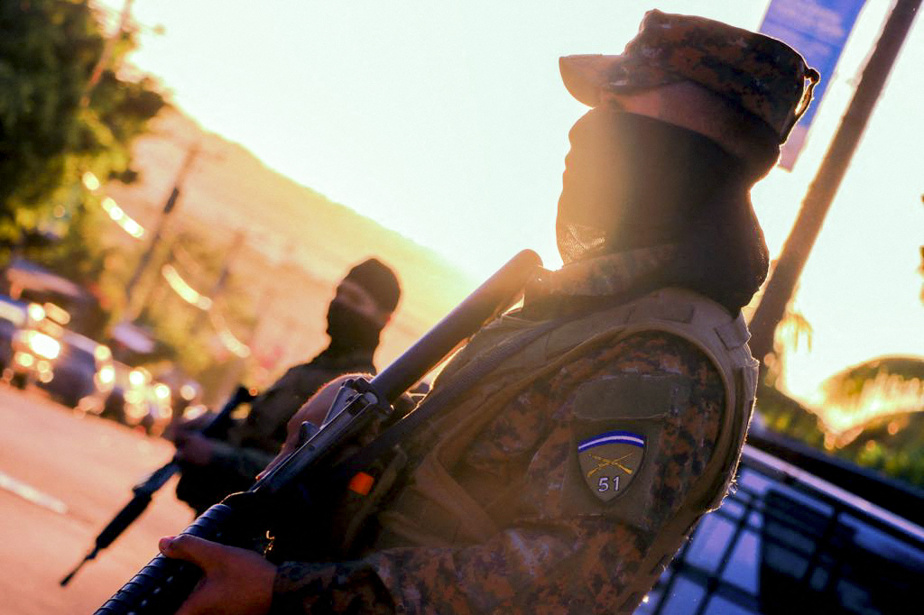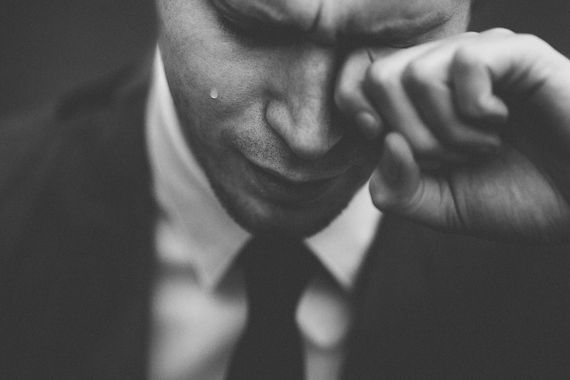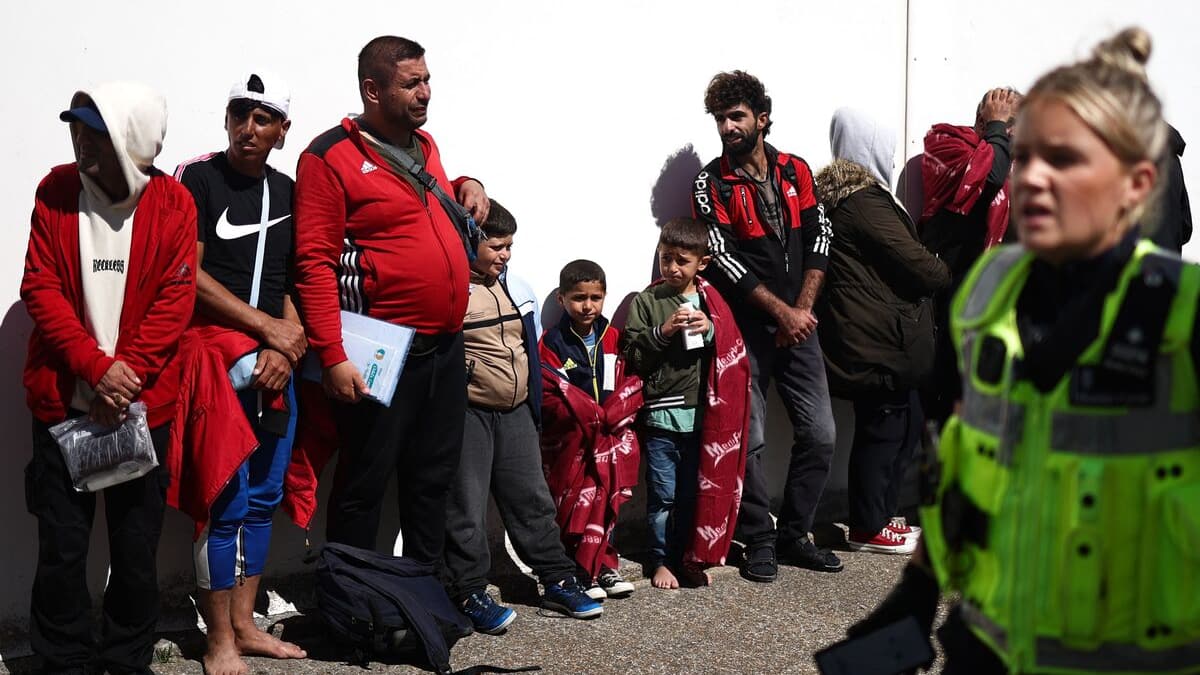
(San Salvador) Nearly 10,000 soldiers and police deployed at dawn on Saturday around Soyapango, on the outskirts of San Salvador, as part of the war against guerrillas waged by Salvadoran President Neb Bukele in March.
“From now on, the municipality of Soyapango is completely surrounded. 8,500 soldiers and 1,500 agents have surrounded the city,” with a population of 242,000, located east of the capital, President Bukele wrote on his Twitter account.
The President announced on November 23 that the towns would be cordoned off so that the army could search house by house and arrest gang members. Soyapango is the first city where this measure is implemented.
Soldiers and police have been stationed since dawn in all the streets leading to the city, preventing anyone from entering or leaving without being checked. Chief Bukele declared that the security forces were responsible for arresting “all the gang members who are still there” one by one.
Military and police vehicles roamed the streets, while drones flew over the area, looking for gangsters. Salvadoran Defense Minister Rene Merino said that forty “checkpoints” had been set up in the municipality of Soyapango.
“It surprised us, they asked us for our identity papers to check our house, but it’s okay, it’s for our safety,” one of the residents, Guadalupe Perez, 53, told AFP.
The police also stopped the buses to check every passenger.
“The citizens have nothing to fear and can continue their activities in peace,” he reassured President Bukele. This process is being waged against criminals, not against honest citizens.”
Surrounding towns in order to “drive out” gangsters is part of the government’s security plan. “People see that the measures taken are bearing fruit,” said criminologist Ricardo Sosa. And it is not surprising that they overwhelmingly support these operations, since they themselves suffered from gangs ».
Salvadorans support the state of emergency at 75.9% and 9 in 10 believe crime has decreased, according to a survey by the University of Central America (UCA).
About 58,000 people suspected of belonging to criminal gangs, the dreaded “maras”, have been arrested in El Salvador since President Bukele declared at the end of March the “war” against these gangs that dominate terrorism in the country.
To counter the influx of detainees, the prison administration has vowed to build a massive prison to house 40,000 suspected criminals in Ticoluca, a rural area in the center of the country.
For years, Soyapango was considered an unsafe city due to the presence of gangs. However, the measures implemented by Bukele’s government have resulted in a “significant improvement in security,” as Mayor Nersi Montano said earlier this week.
It is noteworthy that the state of emergency, which was established at the end of March after the wave of 87 assassinations attributed to “Maras”, allows arrests without a warrant, which has drawn criticism from human rights organizations.
It was extended by Congress until mid-December.






